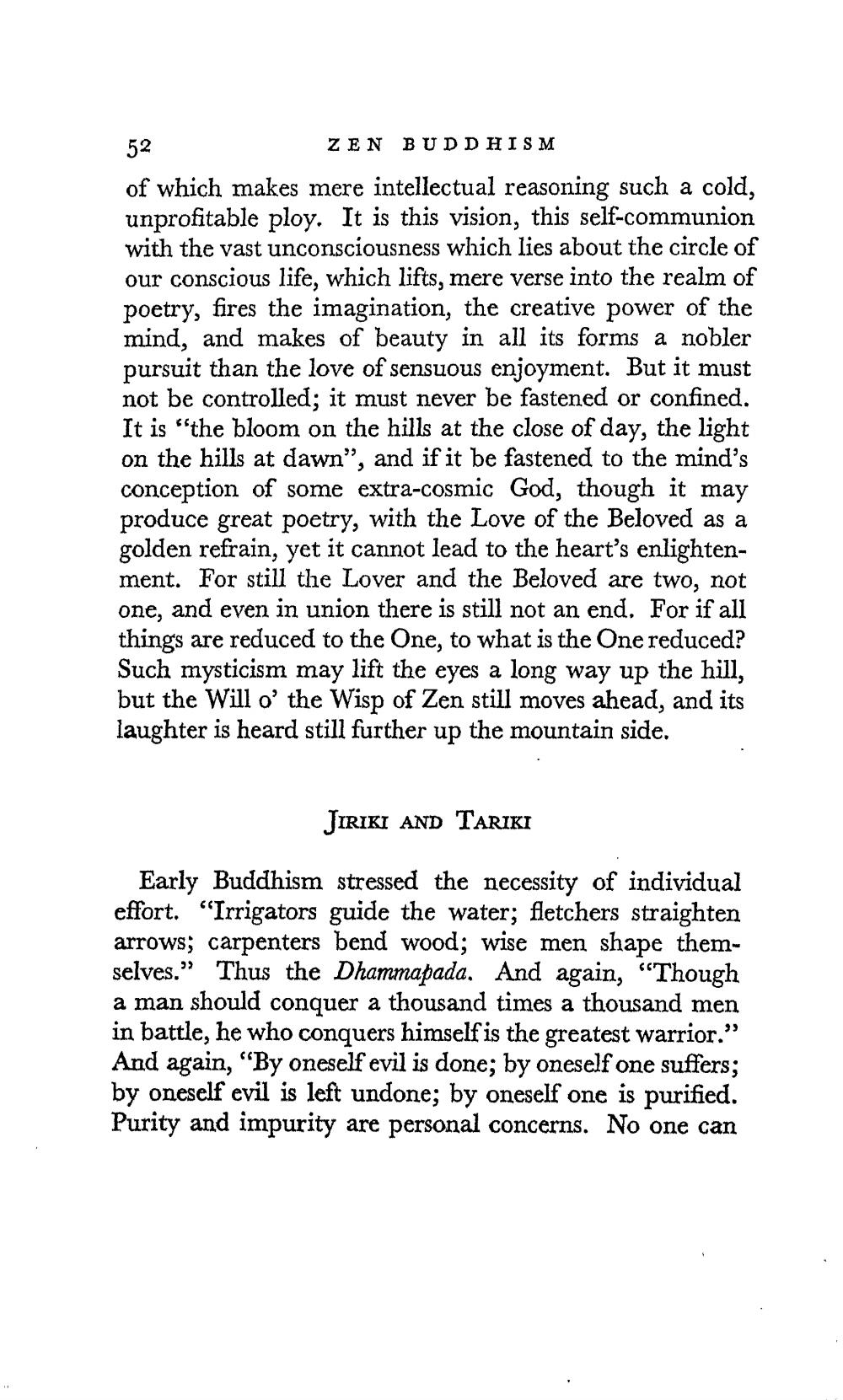________________
52
ZEN BUDDHISM
of which makes mere intellectual reasoning such a cold, unprofitable ploy. It is this vision, this self-communion with the vast unconsciousness which lies about the circle of our conscious life, which lifts, mere verse into the realm of poetry, fires the imagination, the creative power of the mind, and makes of beauty in all its forms a nobler pursuit than the love of sensuous enjoyment. But it must not be controlled; it must never be fastened or confined. It is "the bloom on the hills at the close of day, the light on the hills at dawn”, and if it be fastened to the mind's conception of some extra-cosmic God, though it may produce great poetry, with the Love of the Beloved as a golden refrain, yet it cannot lead to the heart's enlightenment. For still the Lover and the Beloved are two, not one, and even in union there is still not an end. For if all things are reduced to the One, to what is the One reduced? Such mysticism may lift the eyes a long way up the hill, but the Will o' the Wisp of Zen still moves ahead, and its laughter is heard still further up the mountain side.
JIRIKI AND TARIKI
Early Buddhism stressed the necessity of individual effort. "Irrigators guide the water; fletchers straighten arrows; carpenters bend wood; wise men shape themselves.” Thus the Dhammapada. And again, “Though a man should conquer a thousand times a thousand men in battle, he who conquers himself is the greatest warrior." And again, "By oneself evil is done; by oneself one suffers; by oneself evil is left undone; by oneself one is purified. Purity and impurity are personal concerns. No one can




